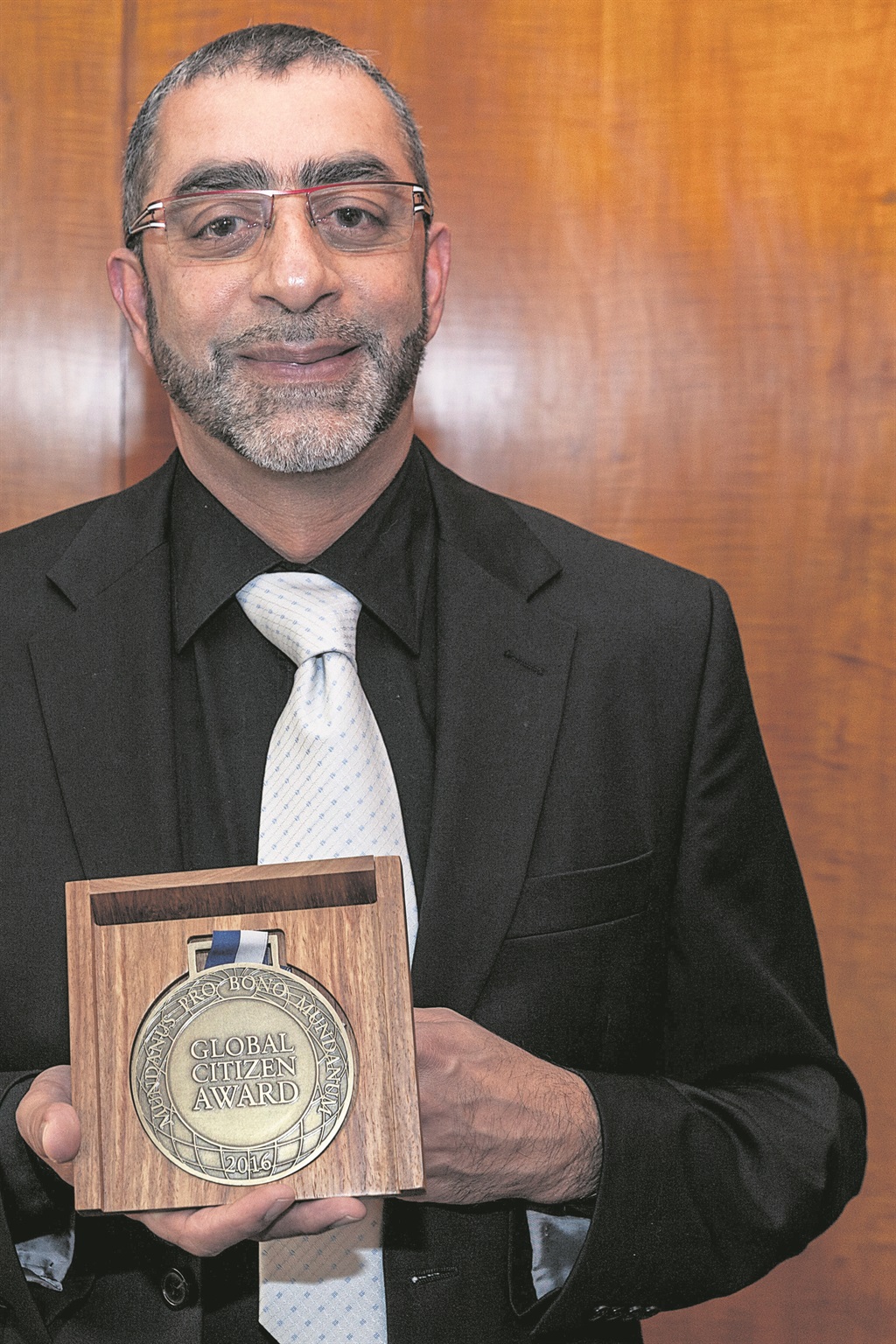
Government could learn some lessons from Gift of the Givers' Dr Imtiaz Sooliman, who has been providing humanitarian aid for the past 28 years, writes Wesley Seale.
At a time when the world's eyes were on the political transition in his homeland, a 30-year-old South African medical doctor was in Istanbul listening to the wise words of his spiritual mentor, Muhammed Saffer Effendi al Jerrahi.
The words of this Sufi Sheikh (elder) were clear.
"My son, I am not asking you, I am instructing you to form an organisation.
"The name in Arabic will be Waqful Waqifin, and that name in English is translated into 'Gift of the Givers'. You will help all people, of all races, of all religions, of all colours, of all classes, of all political affiliations and of any geographical location.
"You will serve them unconditionally and expect nothing in return. Serve the people with love, with kindness, with compassion and mercy – remember the dignity of man is foremost; if someone is already on the ground, don't push them further down – hold them and lift them up."
Africa's largest humanitarian organisation
It was 6 August 1992 and now, 28 years later, Dr Imtiaz Sooliman heads Africa's largest humanitarian organisation, offering disaster relief to people in distress.
From sending rescue teams to Haiti in the aftermath of the 2010 earthquake to providing aid to Somalia, Gift of the Givers has worked in a number of countries, including Bosnia, Pakistan, Zimbabwe, Syria, Malawi and Gaza.
In 2015, when a 7.9-magnitude earthquake struck the mountainous kingdom of Nepal, Dr Sooliman and his organisation were one of the first international organisations to respond.
In December 2016, the Gift of the Givers Foundation helped establish the Centre of the Mother and Child, Markaz Al-Umm wa al-Tifl, for the empowerment and education of the women and children of Matamoulana in Mauritania.
At the same time, 5 000km from Mauritania, the organisation was working with locals in eastern Aleppo, Syria, and providing assistance to the Idlib region, while also running two hospitals, Ar Rahma (mercy) and Al Hilala. At the time, Dr Sooliman reported that approximately 13 000 patients had visited the facilities.
In South Africa, their attention has been particularly on towns and cities during the water crisis. In places such as Beaufort West, Fraserburg, Makhanda, Graaff-Reinet, Bethlehem and Ntinini in KwaZulu-Natal, the organisation has spent in excess of R235 million in the last three years, according to its website.
Across the country, a total of 330 active boreholes have been drilled, 625 truckloads of fodder have been delivered, 250 truckloads of bottled water dispensed and 200 JoJo tanks distributed.
Farmworkers have benefitted from food parcels while children in schools and preschools have been fed through nutritional programmes.
In running a multi-million rand non-profit organisation such as Gift of the Givers, Dr Sooliman can certainly teach our government ministers how to run their departments.
While he and the organisation have worked effectively with some government departments, he is not only able to run an effective and efficient organisation, but his outlook on life and selfless and a shared humanity can inspire those in public office.
Sadly, Gift of the Givers has also seen some sad days.
In 2014, after helping to secure the release of South African Yolande Korkie, the organisation announced that the body of her husband, Pierre Korkie, a teacher, had returned to South Africa.
The Korkies had been taken hostage by Al-Qaeda in Yemen. Pierre Korkie and American Luke Somers were killed during an attempt by US special forces to free them.
In 2017, while working for Gift of the Givers in Syria, photojournalist Shiraaz Mohamed was kidnapped. Taken captive by suspected members of the Islamic State group, Mohamed was eventually released in January 2020 after nearly three years in captivity.
Recognition
Twenty-eight years on, Dr Sooliman and Gift of the Givers have been recognised at home and abroad for their work.
Besides honorary doctorates from Rhodes and Stellenbosch universities and the Chancellor's Medal from the University of Pretoria, they received the Tamgha-i-Eisaar, Pakistan's presidential award, in 2006 for their humanitarian efforts in the aftermath of the earthquake in Pakistan.
Addressing a conference on civil society in 2001, Nelson Mandela said: "One of the outstanding features of these first few years of our democracy has been the emphasis on partnership. Nation-building, transformation and the creation of a better life for all are the main national tasks facing us. In each of these interdependent areas of the national project, we need to forge strong partnerships across sectors and across social divides."
When Mandela was leading the political transformation of South Africa in the early 1990s, Dr Sooliman was laying the foundation of the social transformation of his country and the world.
Dr Sooliman understood then, as he understands today, that as Madiba said, strong partnerships across sectors and across social divides have to be forged in order to embark on the project of nation-building, transformation and the creation of a better life for all.
Yet Dr Sooliman, together with all at Gift of the Givers, was simply putting into practice that which was instructed by his mentor the Sufi Sheikh and echoed by his hero, Nelson Mandela.
- Dr Wesley Seale taught South African politics at Rhodes University in 2016 when Dr Imitiaz Sooliman received his honorary doctorate from that university.
*Want to respond to the columnist? Send your letter or article to opinions@news24.com with your name, profile picture, contact details and location. We encourage a diversity of voices and views in our readers' submissions and reserve the right not to publish any and all submissions received.
Disclaimer: News24 encourages freedom of speech and the expression of diverse views. The views of columnists published on News24 are therefore their own and do not necessarily represent the views of News24.
